Here are the first three
chapters, Sharon
|
|
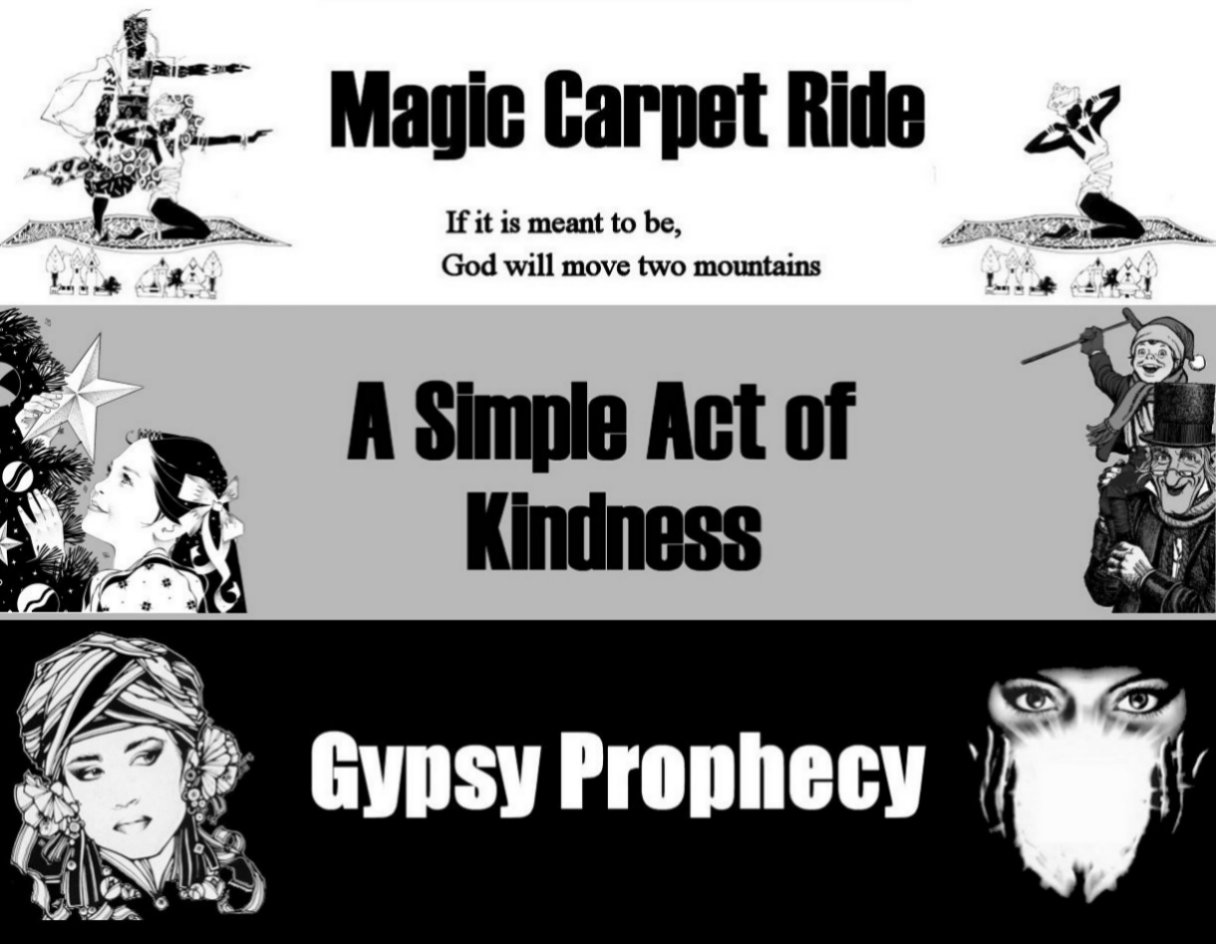 |
Rick Archer's Note:
On the
surface, A Simple Act of Kindness is a
memoir of my difficult childhood. However,
that is not the main purpose of this book.
What I intend to is explain the events that helped
to convince me of the existence of Fate.
And, as
one might guess, I wish to underline the Christian
message implied in the title of my book.
|
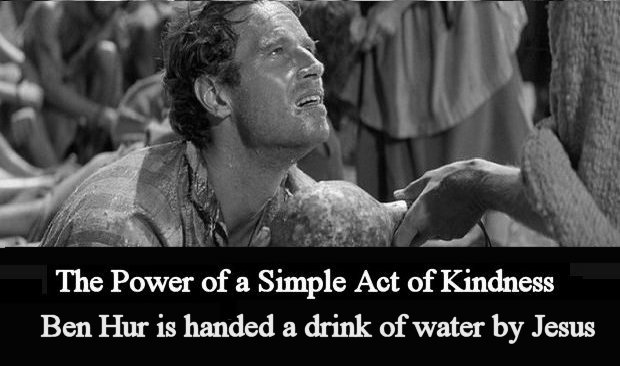 |
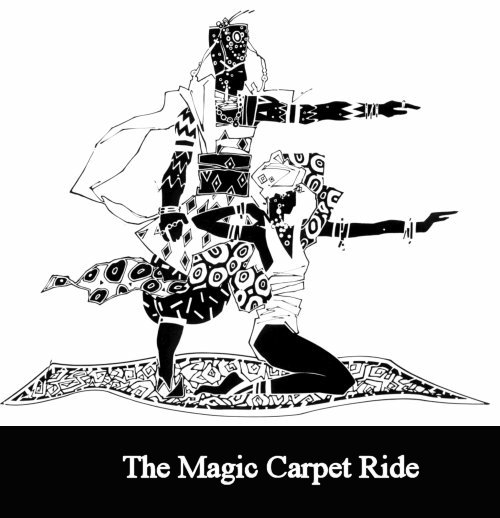 |
So who
is Rick Archer? What qualifies me to write a
book on Fate? For now, let's just say I have
had some remarkable experiences that make it
difficult to believe in anything else.
However, rather than preach to my Reader, I will
tell the stories and let you draw your own
conclusion.
I have
written three books on the subject of Fate.
A Simple Act of Kindness
revolves around the Miracle which saved my life and
led to my belief in God. This book covers the immense problems I
faced throughout childhood, high school, college,
and graduate school. In particular, I explained
how the kindness of several key individuals enabled
me to overcome the serious emotional
handicaps caused by my tough childhood. This
book also explains how I first became interested in Fate.
Magic Carpet Ride picked up where the first
book left off. It covers a ten year span,
1974-1984, which reveals how a series of uncanny lucky
breaks created SSQQ, the dance studio which became my life
work.
Gypsy Prophecy began as a way to tell the
story of an unusual event in
2001. Something very strange happened which strongly suggested the marriage to my wife Marla
was predestined far in advance.
|
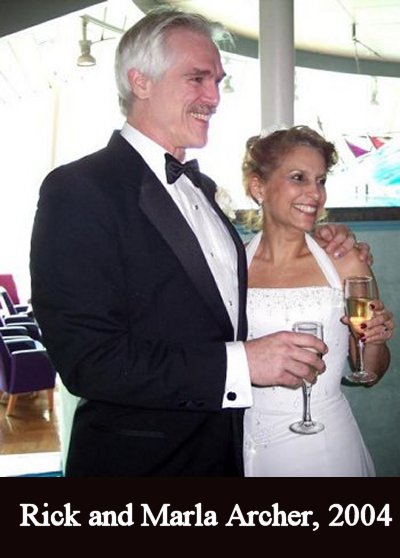 |
I
have Marla to thank for my decision to write
A Simple Act of Kindness. I had
just started writing Magic Carpet Ride
which covers the unusual events of my long
career as the owner of a dance studio.
One
day in 2013 Marla and I took a walk in a nearby
forest preserve. As we walked along, I
commented I had just begun to write my book.
Marla asked, "What will you call it?"
"Magic
Carpet Ride, the story of my dance
career."
"I like your title. Where does it
begin?"
"Age
24 following my dismissal from graduate school."
"Why not start with your childhood?"
"It
would make my book too long to start there."
"But, Rick, you have to tell them
about your childhood. Otherwise no one will
ever understand just how screwed up you were when
you started your dance career."
Hmm.
Thanks a lot. That's Marla for you.
Unfortunately, as usual, she was right.
And so I decided to write A Simple Act of
Kindness in addition to Magic
Carpet Ride.
|
Before
we start, a brief biography would help.
In 1977 a job
as a part-time dance instructor fell into my lap.
For two months I taught line dances to ten students
one night a week. Not exactly an auspicious
start. That changed dramatically when Saturday
Night Fever came along. Suddenly I was
teaching every night of the week. I was so
overwhelmed by the surge of interest that I found
myself woefully unequal to the task.
Fortunately, thanks to a highly suspicious series of
lucky breaks, I was able to extricate myself from
one jam after another. Despite the uneasy
feeling that my continued success was well beyond my
talent level, I created a dance studio named
SSQQ (Slow Slow Quick Quick).
SSQQ was a pretty wonderful place if I may say so.
In fact, there is good reason to believe SSQQ was the largest
independent studio in the country at the turn of the
Millennium.
However,
I was reluctant to take too much credit. Sure, I had
some good ideas, but who can say where 'Inspiration'
really comes from? In my case, all I had to do
was follow a series of Stepping Stones.
It seemed like these Stepping Stones diagrammed a
preordained path called 'Destiny'. Or at least
that's the way it looked to me.
Convinced these Stones had been laid out by a Divine
Architect,
I concluded I was leading a
charmed life.
However, I did not dare tell
people my secret. It had nothing to do with
false pride, but rather a fear of being laughed at.
Who wants to be written off as crazy? However,
my retirement in 2010 conveniently removed any
further need to be respectable. Freed of that
constraint, I decided it was time to share my story.
|
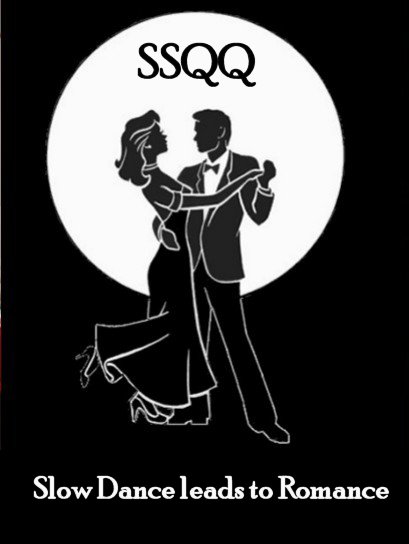 |
Life can only be understood backwards; but it
must be lived forwards.
-- Soren Kierkegaard
What
makes A Simple Act of Kindness
different is my tendency to tell the most
important stories from two perspectives... my
understanding of the event as it took place as
well as how I came to view the event much
further down the road. I feel
fortunate to be in
my 70s as I write my books because
'Hindsight' has made it so much easier to
explain things. Whenever a story involves a potential example of Fate in
action, my
older self will comment on what I
later learned via the gift of Hindsight.
Without
Hindsight, this book would not make a bit of sense.
Let me explain. I omitted any mention of
God and Fate in my early drafts. The danger of writing a book in
which Fate and the existence of God are the central
theme runs the risk of being written off as the
musings of a delusional
crackpot. Or simply laughed at. Then one
day something peculiar happened. A friend
of mine, Jim Dulaney, read a chapter as a favor
to me. His response was not what I
expected.
"You've got to be
kidding, Rick. For starters, what is
the purpose of your book? Best I can
tell, it is an autobiography, but that genre
is usually restricted to famous people.
So I assume you are famous, right? And
why do you make such heavy use of
coincidence? Who do you think you are,
Charles Dickens? I have a suggestion.
No one is going to believe this stuff really
happened! Stop exaggerating and stick
to the truth. Personally, I think you
are better off passing this off as Science
Fiction."
What Jim was trying to say was that my story was too
far-fetched for his comfort. Stung by his criticism,
two
things crossed my mind. First, I had
told the truth. Second, I was not
exaggerating. However, I saw Jim's point.
Readers get very uneasy with writers who rely too
much on weird Coincidences to advance their plot. It
was my third thought that really got my attention.
Did Jim's stern message contain a hidden
meaning? Perhaps Jim's
rebuke was God's way of suggesting I confess my belief in Mysticism. That was the moment I decided to come clean.
It was time to publicly admit why I believed I had long been the
beneficiary of God's blessings.
|
And so I decided to rewrite my
book in a much different way. From now on,
after each unusual story, I would comment on its
Impact using the advantage of my advanced years.
In other words, I would explain my life as I lived
it forward and then I turn around and explain the
same story backwards.
In my
experience a small, very odd Coincidence can lead
to profound consequences. However, most people
do not take Coincidence seriously. For one
thing, most coincidences are rare. For another
thing, they are random and often take place when we
are too preoccupied to pay attention. In
particular, most Coincidences are meaningless, so we
learn to ignore them. And, most important of
all, since we do not know their Impact, we have
little reason to take them seriously.
As I
will explain as we go along, I take each Coincidence
very seriously because I believe they serve as clues
regarding the existence of God. Furthermore I
do not think I am alone. Over the years many
people have noticed the same curious events as me
and reached a similar conclusion.
I
understand there is
no way to prove the existence of Fate 'scientifically'.
That said, the unusual events of
my life offer strong empirical evidence to suggest Fate plays a vital role in our lives.
For the past two thousand years, the Holy Bible has
been the all-time best-seller because people trust the
word of the men who wrote
about those miracles. I too
intend to write about Miracles. Since many of
my stories will arouse skepticism, I give you my
word I have related the details of each Supernatural
Event as accurately as possible.
Although
my events are modest compared to the parting of the
Red Sea, nevertheless they far exceed the accepted rules of probability.
You may question whether my observations were
accurate. That is your right. You
may not agree with my conclusions. That's okay
too. However, I dare you to dispute the fact
that many of these stories are downright weird.
Once you read about my experiences, I suspect you
too will begin to question the nature of what we
refer to as 'Reality'.
And with
that, let us begin with my first Supernatural Event.
|
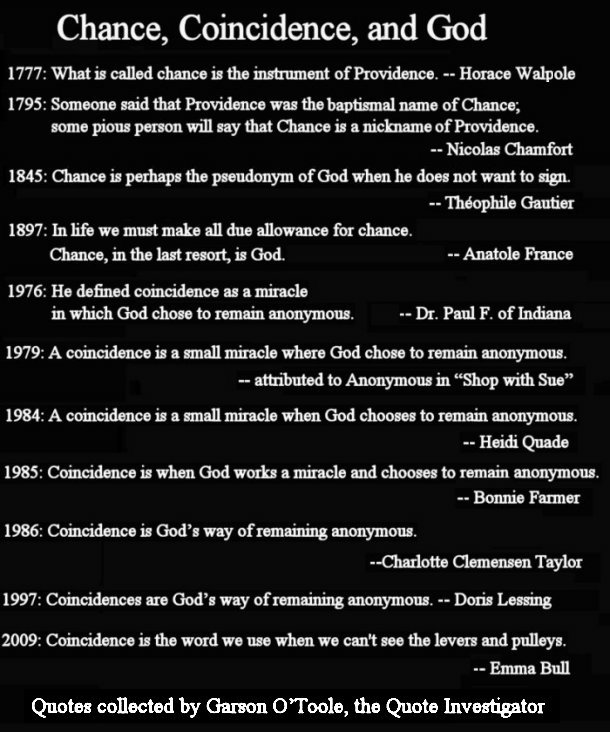 |
|
|

A SIMPLE ACT OF
KINDNESS
CHAPTER TWO:
A BRUSH WITH DEATH
Written by Rick
Archer
|
|
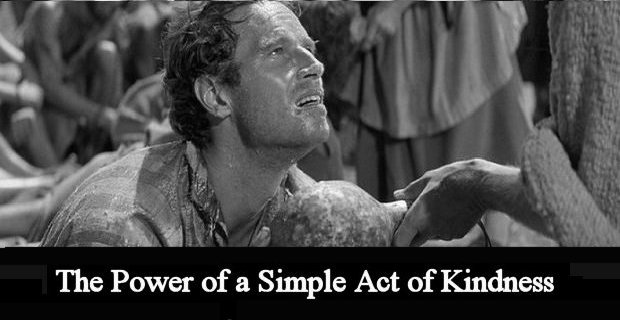 |
Rick Archer's Note:
The danger of writing a
book in which Fate and the existence of God are the
central theme is being written off as a
delusional crackpot. Oh well,
that's a risk I guess I will have to take.
Fortunately over the years the penalty for
possessing unusual beliefs has been reduced.
For example, once upon a time heretics such as
Giordano Bruno were burned at the stake. And
what was his crime? Bruno was ordered by the
Catholic Church to recant his belief that Copernicus
was right about the Sun as the center of our
Universe. These days the likely punishment is
ridicule. I suppose there are worse things to fear.
|
My
friend Jim said I needed to be famous to write an
autobiography. Hmm. No such luck.
However, to the people who do know me,
I am
considered normal and harmless. I am happily
married, have a daughter in graduate school, own my
house, pay my bills promptly, and have no criminal record.
During
my career as a dance instructor
I helped build a thriving dance community kept
intact by a countless number of close friendships.
SSQQ was more than a dance studio, it
was a family. When I retired from my dance studio in 2010, I left
behind a 32 year legacy of running a popular,
scandal-free business that taught roughly 400,000
students how to dance. The statistic I am most
proud of are the 400 marriages that took place
during my career involving people who met at the
studio.
My
successful career is all the more remarkable based
on my difficult childhood. I predict my
Readers will be appalled of the heart-wrenching
stories contained in this book. I might add
that I don't look very good much of the time.
I was an only child raised by dysfunctional parents.
My father abandoned me and my mother ignored me to
look for love. Forced to raise myself starting
at age 10, I did not do a very good job. This
explains why I grew up gnarled and twisted. However,
let's not get ahead of ourselves. The good
news is that I turned out okay. How did that
happen? Simple Acts of Kindness.
|
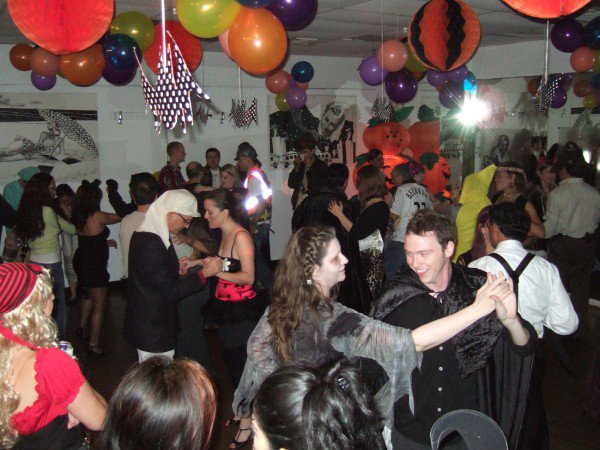 |
|
early 1955
THE DAY I CUT MY eye OUT
|
Born at the end
of 1949, that makes it easy to keep track of my age. For example, I was 5
in 1955. Like a lot of kids that age, I was young and
stupid.
For reasons that escape me now, one
morning it was terribly important to take a thick piece of
rope and cut it in two. My mother was in another room
watching TV as I searched for a tool. Sharp knives
were kept in places I could not reach, so the only thing I
could find was a dull kitchen knife. The weak serrated edge
was not getting the job done. It was taking forever to cut through this
rope, so without thinking I changed directions and began pulling the knife towards me. I was
stronger pulling in the wrong direction, so I continued. It was slow going,
at least ten
minutes, possibly longer.
I was nearly
finished when suddenly my mother called from another room in
a loud, demanding voice. "Richard, it's time to go."
I
immediately protested. "But, Mom, I'm not done yet!"
Mom responded, "I don't care.
Andale! (Spanish for
hurry). Whatever you're doing, finish it up and
let's Vamanos."
|
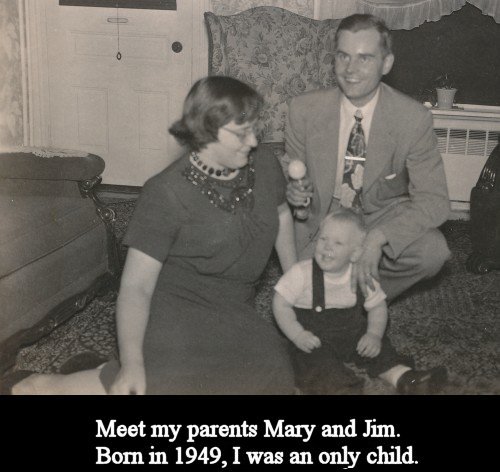
|
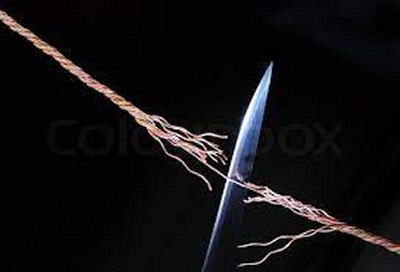 |
A
sense of urgency came over me. I was almost
done, so I gave the knife one big jerk. The knife went
through the rope like butter and, since I am
left-handed, continued in an arc that sliced
the pupil of my left eye. Strangely
enough, it did not hurt at all. All I
remember is some fluid gushing out and then
the eye went blank. Of course I
screamed.
Next thing I
know, Mom was rushing me to the hospital. Tough luck.
Ultimately the eye could not be saved. I developed a
cataract but two surgeries to correct it
were
unsuccessful. Even more problematic, I
developed a detached retina. At this
point, the doctor detected early signs of 'sympathetic
ophthalmia'. This is an
inflammation of the bad eye which can follow
trauma. Somehow the inflammation can
transfer from the bad eye to the good eye,
causing the good eye to go kaput just like
the bad eye. This condition can leave
the patient completely blind, so they
decided to completely remove my bad left eye
as a precaution. I was given a plastic
eye to fill the empty eye socket. As I
aged, the risk of losing the good eye kept
me out of high school sports. That was
a shame because I turned out to be a pretty
good athlete. We will get to that in
due time.
|
Over
the course of my life, I blamed my mother
for a lot of things, but not this one. There is no way for
even the most overprotective parent to anticipate all the extremely
ignorant things a child is capable of. Especially
one like me.
What turns this
accident
into a potential Supernatural Event is the curious timing as
well as the collapse of my better judgment.
As for Timing, my mother called out to me at the worst possible moment.
If she had called earlier, there would have been no problem.
Or if she had called out with less urgency
in her voice. I would have calmly put the
rope aside and resumed later. I only
gave the knife a giant jerk because I could see the rope was
down to its last fiber. Let's finish this and get it over
with.
|
The other area of concern was the
mysterious loss of
my common sense. At age 5, I knew better. I
had been warned to cut away from myself. I sometimes
wonder why I forgot that warning. So this brings up
the possibility of Cosmic Blindness.
Cosmic Blindness, you ask.
What the heck is that? Well, as a favor to my Readers,
we might as well start the weird stuff now. The danger
here is that if I postpone talking about "The Weird Stuff",
you might risk really enjoying this book. They say
it's better to have loved and lost and so on. In the
case of this book, I don't necessarily agree. I say it
is better to decide early on if your author and this odd
book are just too far-out to make continuing worth your
valuable time.
Based on several experiences over the course of my lifetime,
I have developed a theory that says there will be times in
our lives when our Fate decrees really bad needs to happen.
An easy way to allow Fate to take place at its assigned time
would be to suspend our judgment temporarily. After
the deed is done, we get to spend the rest of our lives
wondering how a smart person like ourselves could have ever
done something so pathetically stupid.
As it turns out, I have a kindred spirit who I suspect
thinks in ways similar to mine. Author J.K. Rowling
once said, "Talent and intelligence will not inoculate
anyone against the caprice of the fates. Humans have a
knack for choosing precisely the things that are worst for
them."
Blind eye.
Good Luck or Bad Luck? As we shall see, some of my
worst mistakes turn out to disguise a hidden benefit.
Unfortunately, no Silver Lining in this one. In Hindsight, I cannot think of
a single benefit over my lifetime. Verdict: Bad Luck.
Really Bad Luck.
|
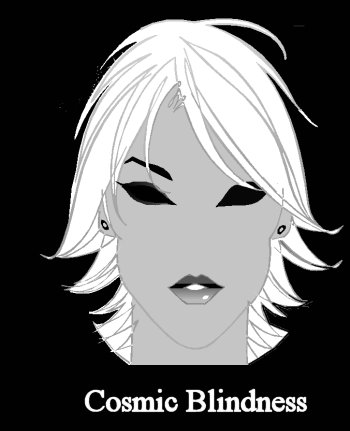 |
RICK ARCHER'S LIST OF
SUSPECTED SUPERNATURAL EVENTS
|
| |
|
A SIMPLE ACT OF KINDNESS |
|
|
|
001 |
Suspicious |
Unlucky Break
Cosmic Blindness |
1955 |
| |
Rick cuts his
eye out by foolishly pulling knife in wrong direction when his mother
calls out at the worst possible time. By coincidence, Rick's father lost one of his eyes at
the same age.
|
|
|
|
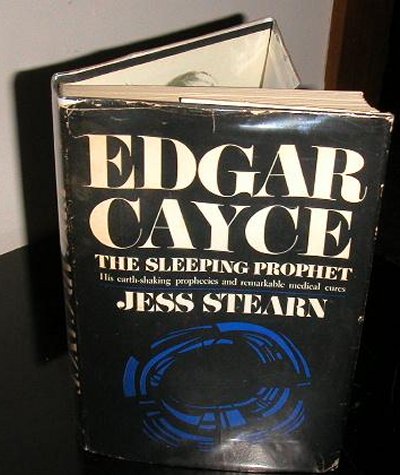 |
Jim Archer, my father, was very interested
in Fate. However I am not sure where
he got his outlook. I was probably too
young for him to talk
about his philosophies. Dad was religious. He and Mom
were members of the Quaker Meeting here in
Houston. Dad was fascinated by Edgar Cayce, the man known as the Sleeping Prophet.
He also had an affinity for a 50's TV show called One Step Beyond,
advertised as a guide to the supernatural. The show
presented tales of paranormal events and various
situations that defied logical explanation. In particular, Dad
fixated on stories about Peter Hurkos, a Dutchman considered by
experts to be the world's foremost psychic.
Dad could not stop talking about him
afterwards. "I think there
really is something to this ESP business!"
Oddly enough,
just like me, my
father lost his left eye as a young boy.
A brick falling
from a stone wall struck him as he walked home from school.
Dad heard a commotion above and looked up at the worst
possible time to allow the brick to take his eye out.
So when I cut my eye, Dad freaked out. This was too
big a coincidence for him to overlook. He was
convinced something very weird was going on and told me so.
My
father was extremely superstitious. So am I for that
matter. I get my big mouth from my mother and my
superstitious side from my father. Dad was very upset
because it seemed weird that we would both lose an eye
during childhood. However, if you thought he was
superstitious about that, you should have seen him the day
we barely escaped death.
I
had cut my eye out just days
before the family's big 1955 move to Texas. Dad
was an electrical engineer. He had recently been
transferred to Houston from Bethesda, Maryland, by his
company Square D. Mom and I stayed behind in the
hospital while Dad went ahead. When we reached
Houston, I underwent my second unsuccessful operation to remove
the cataract. It failed due to a detached retina.
However the doctor said I still had a chance to save the eye.
He recommended I stay bed-ridden for a month to see if the
retina would heal on its own.
|
Since I was healthy otherwise, I despised
being forced to stay in bed 24/7 with a
giant bandage over my bad eye.
During
my bed stay, my father would visit me every
night and sit on the bed.
As a little boy, I worshipped the ground my father walked
on. Every now and then I would ask him to show me his
Purple Heart medal from World War II. Invariably I would
also ask to see the impressive scar on his upper thigh
caused by
the bullet wound.
"Dad, was getting shot the worst thing to ever happen to
you?"
My father would nod and remind me how he had been in extreme
pain during his six month stay in the hospital.
One day after I asked him to show me his scar again, Dad
stared at the bandage covering my damaged left eye.
Sitting at the side of my bed, he said,
"You know, Rick, I am really sorry that you cut your eye.
But being blind in one eye is not the end of the world.
I'm blind in my left eye too and things have worked out okay."
I
protested. "But, Dad, I've had two operations and they haven't
done any good. Plus I've been forced to lie in bed for the
past month
because the doctor says that's the only way for my detached
retina to heal. I'm sick
of it! I just want to go running in the fields with my dog and
play baseball and stuff like that."
|
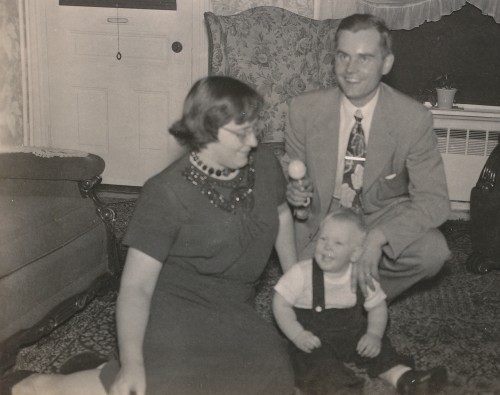 |
My father
nodded. "Yes, I understand your problem. I remember
being bed-ridden after I was wounded. But sometimes bad luck
turns into good luck. Who knows what the future holds?"
My eyes
furrowed. "What on earth are you talking about?"
For the first
time my father told me the full
story of his scar.
It was January 1945.
The Battle of the Bulge was the last major German offensive of World War II. It was launched through the densely-forested Ardennes region in eastern Belgium.
The surprise attack
in the dead of winter caught the Allied forces completely
off guard. Furthermore, it was the Americans who bore the brunt of the attack.
With their defenses down, the Americans
incurred their highest casualty rate of the war.
My father's unit of
fresh recruits had just arrived to reinforce the beleaguered
Allied forces. My father, 19 at the time, had only been in Belgium for a couple
weeks when he was told to join a scout patrol sent through the deep snow
of the Ardennes forest.
At this point, the Battle of the Bulge had not yet begun.
However, everyone knew the Germans were up to something.
|
 |
As my father's unit slowly made its way through
thick snow in this winter wonderland, a shot
rang out from a thicket of trees.
The bullet hit my father in his right hip
right where it connects to the leg. It damaged
both his thigh bone and his hip bone badly.
Instantly my
father was knocked off his feet. He fell to the ground
writhing in pain. Unable to walk, he summoned every
ounce of will to crawl towards a nearby fallen log for protection.
It was a good thing Dad moved because
another shot whizzed right past his ear.
The sniper was trying to finish the job.
The sniper did
not get another shot off because my father's comrades
instantly retaliated. They inundated the spot where the shot had
come from with a hail of bullets. Expecting to find a
body, they carefully
explored the area to find the sniper. All they found
were footprints in the snow and two empty shells behind a tree.
They could have followed his tracks in the snow.
However, well aware that the German could be planning another ambush, they
wisely gave
up the hunt.
Meanwhile Dad was
screaming due to the overwhelming pain. He
couldn't walk, so the men had to carry him back to camp. It took everything my father had in him to bear
the pain. Seeing his agony, the men in the unit expressed their encouragement
and told Dad to hang on. At that point, it was his
good fortune to pass out.
|
After being
shipped to a
hospital in England, Dad was in tremendous pain for days on end.
Even when the pain finally subsided, Dad was unable to get
out of bed without a wheel chair for several months.
Unable to walk and forced to remain bed-ridden most of the
time, he wallowed
in self-pity and bitterness at his bad luck.
Dad
said he suffered the worst depression of his life. He
was afraid he would never walk again and the constant pain
drove him crazy. Even after his discharge, Dad
walked using a crutch for nearly a year.
"That's
terrible, Dad! That must have been the worst thing to
ever happen to you."
Dad stopped his narrative and got one
of those strange looks on his face. After a pause, he
resumed.
"Yes, it was terrible. But here's the funny thing about it. Without
hesitation,
I can say this injury was
the luckiest break of my life. One week after getting
shot, I was lying there in my bed feeling sorry for myself.
That's when I heard a report that my unit's
position was under attack.
Soon the information came that half my unit was dead and almost everyone else
was
badly injured. I was so stunned I did not know what to
think.
My next stop
would be a college education care of Uncle Sam, but my
buddies weren't quite so fortunate. Their next stop
was a snow-covered grave in the Ardennes forest. My
injury got me
out of the war with
my life, my body, and my pride intact. That is how I
learned that no event
can be judged as good or bad on the spot. Time must
pass before we can render final judgment."
|
summertime 1955
a brush with death
|
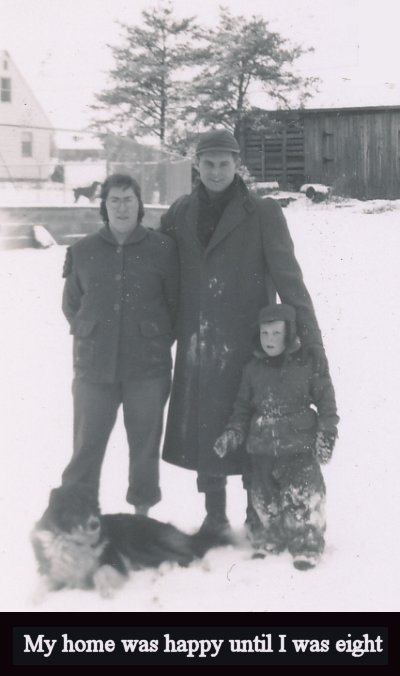 |
My father was
crazy about me back in those days. We did everything
together. Wherever Dad went, I went too. It made
Dad sick to think about what I was going through. At
the time, I was allowed to walk around with a giant patch
over my bad eye. My father already knew I was going to
have my damaged eye removed, but so far he did not have the
heart to tell me. Dad felt really sorry for me, so one
summer night he tried to cheer me up by taking me to a
carnival. Afterwards, the plan called for us to
attend a stock car competition held on a race track located
at the back of the carnival.
Dad and I had a
deal. I could play all the games I wanted as long as I
promised not to protest when it was time to go see the race. Dad let me play games,
the usual stuff, ring toss, baseball
toss, haunted house, house of mirrors, etc. However, after an
hour, Dad became impatient when he heard the sound of the
race cars
warming up in the distance. Dad said it was time to
go see
the stock car show. I could have cared less about the cars, but that was what
Dad was interested in
so I cooperated as I said I would.
As
we began making our way to the race track, the loud
roar of the powerful car engines was intimidating. Due to a
tall wooden fence, I could hear the cars, but I could not
see them. I asked Dad why the noise was so loud.
Dad said the drivers
were warming up their cars by barreling around the track at
breakneck speed. Then he added there must be a curve
just on the other side of the fence.
As we walked along the
sidewalk to the ticket booth, we passed an arcade game where I could
shoot slow-moving wooden ducks with a cork rifle. I froze in
my tracks with excitement. Overcome by a sudden irresistible urge to play,
I grabbed my father's arm and forced him to stop him too. I pleaded
with Dad to let me play one more game.
Dad said, "No,
son, you've
had enough. We're going
to be late
as it is."
But I wouldn't take no for
answer. I held onto his arm and
insisted.
"C'mon, Dad. Just this
one last game, please??"
|
Just as the word
'please' left my mouth, we were startled by the frightening
sound of a loud crash. We had been standing there debating for
no more than three or four seconds when a race driver
lost control of his car on that curve. His car plunged through the flimsy wooden fence
as if it were made out of thin paper. Whirling our heads in panic,
we screamed at the sight of an enormous race car hurtling straight at us.
Something had caused the
car to leave the ground, so it was literally flying in air.
Since the rickety old fence did nothing to slow this giant projectile, there was no time
for us to dodge. We were sitting ducks! Fortunately, the car missed us by
about three feet. The displaced air was so powerful it knocked us down with a rush. As I
fell to the
ground, I looked up to see the car
crash violently into a telephone pole ten feet to my right. The impact was
brutal; the driver was killed
instantly. He had paid the ultimate price for losing control of his
car.
As I scrambled to my feet, I heard a snapping sound.
Dad and I stared in horror as the telephone pole
broke in two, then fell on top of the crumpled car. Dad was in shock.
I guess I was too. Unable to get over seeing that poor lifeless driver
slumped over the wheel of the car, I started to cry.
Meanwhile Dad stared at me with
the weirdest look on his face.
"Son, if
you hadn't stopped me, we would both be dead now.
You should thank your guardian angel for saving us."
The timing of my sudden
interest in that arcade game was a Coincidence of the highest
magnitude. It saved my life. Otherwise we would have
been right in the path of that car. Due to his belief in ESP,
Dad believed my guardian
angel had telepathically persuaded me to stop where I was.
That confused me. Angel? What angel?
I took Dad literally and looked around. There wasn't any angel
I could see. However, my father was right
about one thing.
We had missed death by an instant. Had we continued walking,
we would have been right in the path of that speeding car.
Dad was so convinced a
Higher Power had intervened to save us, I became very interested in
my guardian angel. If I had a angel, then why didn't that driver have an angel?
Furthermore, where was my guardian angel when I cut my eye
out five months ago? Although I was too
young to fully understand the metaphysical implications, thanks to
my father, I
became interested in the Hidden World at an early age. Dad talked about Fate on several
occasions and always reminded me of the race car story. Dad was
convinced we had been saved that day because it was not our time to
die.
|
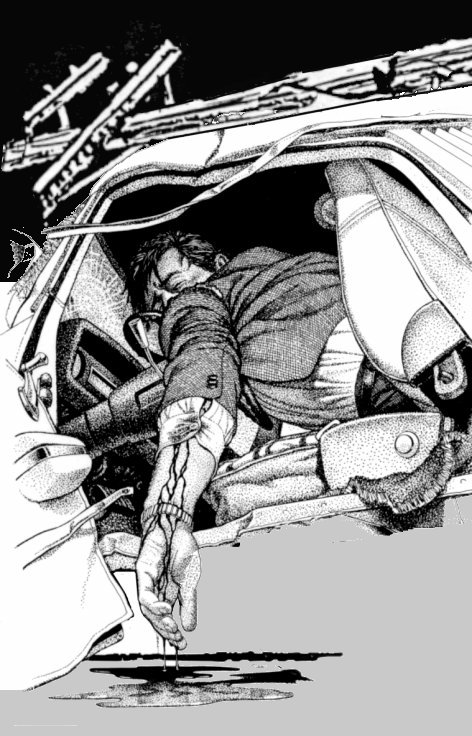 |
RICK ARCHER'S LIST OF
SUSPECTED SUPERNATURAL EVENTS
|
| |
|
A SIMPLE ACT OF KINDNESS |
|
|
|
002 |
Serious |
Lucky Break
Coincidence |
1955 |
| |
A sudden impulse to play arcade game saves Rick and his
father from instant death at the Stock Car accident |
|
|
001 |
Suspicious |
Unlucky Break
Cosmic Blindness |
1955 |
| |
Rick, 5 years
old, cuts his
eye out by foolishly pulling a knife in the wrong direction when his mother
calls out at the worst possible time. By coincidence, Rick's father lost one of his eyes at
the same age.
|
|
|
|
|

A SIMPLE ACT OF
KINDNESS
CHAPTER THREE:
MOM AND DAD
Written by Rick
Archer
|
|
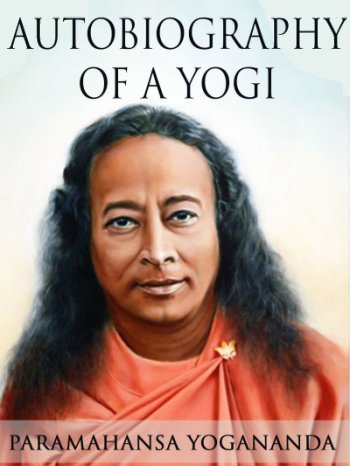 |
Rick Archer's Note:
I have a
favorite book,
Autobiography of a Yogi. Written by
Paramahansa Yogananda, the Hidden World is explained
from the eyes of a man who has the ability to see
behind the curtain. I have no way to prove
that Yogananda's claims are true, but I will say
that his book describes a Universal law known as
Karma in a very compelling way. Yogananda
explained that certain deeds we committed in one
lifetime are responsible for similar deeds done to
us in our current lifetime. However, since we
cannot see our previous lives, the world seems very
unfair because the good die young and evil people
get away with murder. We think we suffer
needlessly when in reality we are paying a price for
misdeeds in a previous lifetime.
Yogananda said that if we could see the big picture,
we would realize there is justice in the Universe
after all. In addition, he said the
distinction between a lucky break and a bad break can be easily
blurred. Sometimes good breaks become bad breaks.
Sometimes bad breaks become good breaks.
Everything that seems to be
bad on the surface may
turn out to be
something good in
disguise. Maybe there's a silver lining
somewhere. And something that seems good
on the surface may have unexpected
consequences.
Only time
will tell.
When I
read this, I could not help but think of my father's
sniper wound. To me, Yogananda's meditation on
Good Luck/Bad Luck is Kierkegaard's phrase said a
different way. We must live our lives forward,
but we will never understand each event fully until
we can look back.
|
|
"But,
Rick, you have to tell them
about your childhood. Otherwise no one will
ever understand just how screwed up you were when
you started your dance career."
-- Marla
Archer, 2013
Be forewarned I intend
to speak of my parents in a distinctly candid way. I apologize
in advance for my candor, but my story will
not make much sense otherwise. Out of respect for my
parents, I
waited till they passed on before
writing this memoir. However, once they died, I saw no reason to disguise or
sugarcoat the truth. Although my
parents deserve credit for helping me obtain a fine education and for giving me
a home, beyond that they came up woefully short. While I
understand that parents worse than mine can
be found in the filth of Mumbai and the mean
streets of Detroit, by any standard of
middle-class parenting, my parents belonged
at the back of the line.
|
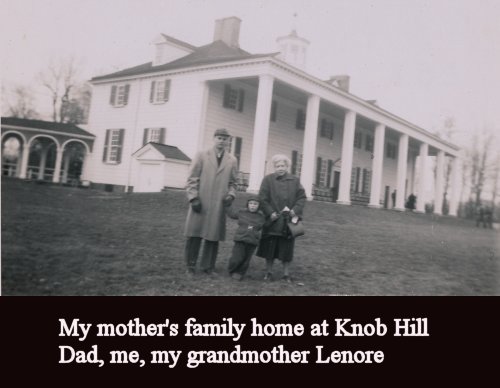 |
My mother Mary
Griffiths came from
a solid home in mid-Pennsylvania
Mary's father William
was the district supervisor for a Pennsylvania oil company.
Mom grew up in a comfortable, upper-middle class home atop a hill in
a rural area located near Reading, Pennsylvania, her birthplace.
|
|
|
There were two boys and
two girls in the family. Mom was extremely close to her
younger brother Dick, but always felt inferior to her older
sister Gwen who was quite beautiful. By contrast, Mary
was plump, plain and wore thick glasses.
Unfortunately Mary's
mother Lenore never failed to point out the disparity. Lenore constantly berated her
daughter about her looks. She asked why Mary couldn't try
harder to be pretty like her older sister. Do your hair, use
some make-up, but for heaven's sake, do something! And while
you're at it, lose some weight.
As one might guess, Mary
grew up feeling like the ugly duckling. Mary wasn't particularly
athletic or social. On the other hand, Mary was extremely bright
and excelled in school. Her books were her best friend.
|
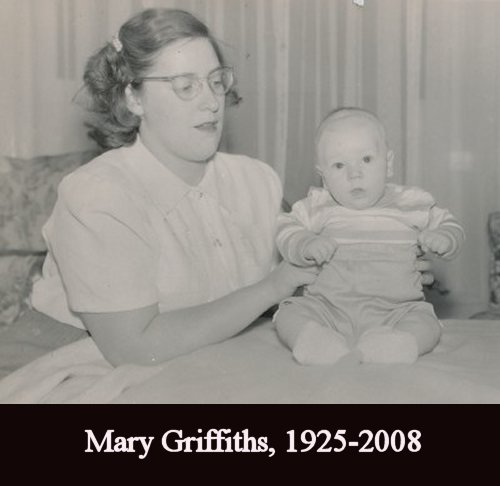 |
| |
|
So what about Dad?
Like me, Jim Archer was an
only child. Born in Lima, Ohio, following the death of his
father at age 6, his childhood was very
lonely. He and his mother moved to
Reading, Pennsylvania, when he was 13.
The nicest thing I can
say about Jim is that he was a very smart guy and brilliant in
his field. Unfortunately, he was also a superficial man who
lacked character. He was soft. I think the world knocked
him down at an early age and he never completely got back up.
For the rest of his life, he always took the easiest way out of any
dilemma. Dad spent most of his life hiding behind the skirts
of domineering women.
The parallels between my
father's childhood and my own are disturbingly similar. Dad was
an only child who didn't get along with his strange mother.
Interesting.
Like me,
my father lost an eye due to a childhood accident.
Like me, he had a
serious bout with acne, although not nearly as bad as my problem.
Jim's father died from
acute appendicitis. While my
father didn't exactly die on me, he more or less removed himself
from my life at age ten. Which is another way of saying Dad
abandoned me.
Jim became
lonely, insecure young man who turned to books as his escape route.
Hmm, so did I. Jim told me how much he missed having a father.
How ironic. I often wondered if Dad ever realized he was making me
suffer the exact same fate he did.
My father caught a lucky
break in World War II. Practically on his first day of action,
a German sniper popped him in the hip while he was on patrol during
the Battle of the Bulge. Although Dad was unable to walk for a
while, it was a non-threatening wound that left an impressive scar.
By the time the wound healed, the war was over. Dad collected
his purple heart and began his free ride to college paid for by
Uncle Sam.
However, Uncle Sam
didn't pay for room and board and Jim was penniless. One might
suppose Jim could work odd jobs to pay his way, but he had a better
idea. My mother came from a wealthy family in my father's hometown. Although
Mom was plain and lacked confidence,
Dad needed a meal ticket and Mom was a
good catch.
|
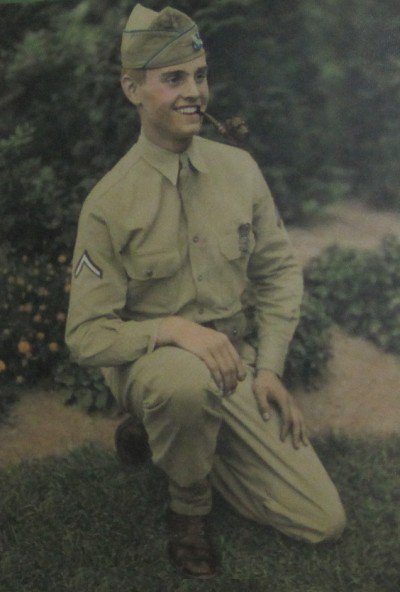 |
My father had a rather checkered genealogy.
The English set of ancestors landed in
Connecticut in the 1600s. The Irish line
settled in Ohio and
Michigan. Sometime prior to 1900
Clara Randle from the English line married
William Peet from the Irish line and gave
birth to a son. Peet was a lout, so Clara
Randle escaped with the boy. Soon after
that Clara took up with a guy named George
Archer. There is no record of a marriage,
but the woman adopted his last name
nevertheless. At that point she changed her
son's name to Orlo James Archer which is
ironic because George promptly deserted
Clara, leaving young Orlo
the First with no legal
reason to be called
'Archer'. No big deal; people
changed their names all the time when they
moved to the New World.
When he grew up,
Orlo became a traveling
insurance salesman. Somewhere
around 1925, Orlo
married Dorothy Johnson who gave birth to a
boy, Orlo the Second. Sad to say, Orlo the
First died when my
father was 6, leaving his
widow Dorothy and
her little boy to face a hardscrabble
existence. I don't
think Dorothy remarried, so it was
just her and Orlo James
the Second.
Incidentally, the
crazy thing is I had no idea my
father was a 'Junior' until I was in
my 70s. Nevertheless I suppose I should be
grateful things worked out like they did. I
would much rather be an 'Archer' than
a 'Peet' and thank God I didn't end
up as Orlo the Third. Just the thought
makes me shudder.
|
|
|
 |
I don't recall much
about my father's mother Dorothy, but my mother had few good words
to say about her weird mother-in-law. Dad's domineering mother
was said to have a bad habit of relating to her son Jim more as her "companion" than son.
Which is another way of saying this lonely woman treated him like a
boyfriend. I have no idea just how far this went, but no doubt
this strange relationship contributed to my father's suspect character issues.
Mary probably suspected
Jim had his shortcomings. On
the other hand, he was a good-looking man and extremely bright.
Plus I can't imagine my mother had a wide range of marriage offers,
so
I expect she decided to take her chances. And so the Momma's
Boy married the Ugly Duckling. Considering the baggage each
brought to the marriage from their respective childhoods, it was an
inauspicious match that bode poorly for the future. Their
wedding picture alone sends chills up my spine given the unfortunate
disparity in their looks.
Dad received his training as an
electrical engineer from Drexel Tech in Philadelphia. Mom
dropped out of college to support him. This was a noble
gesture at the time, but it would prove to be a serious mistake ten
years down the road.
Dad
started his career a year before I was born in 1949. My first home was in
Bethesda, Maryland. Dad worked as a salesman for Square D,
a manufacturer of fuse boxes and equipment used to control and
distribute electric power. The company transferred Dad to Houston when I was six. Dad was good at
sales, but yearned to put his engineering talent to better use. While
I was in college, Dad moved over to Kranco, a company that built massive
cranes. During his career at
Kranco, Dad was finally able to show the world what he could do. He became
the go-to guy for large and difficult projects that called for unusual solutions. My father
was frequently called in to handle the toughest assignments.
For example, he designed the
electrical system for a rocket-launching crane at Cape Kennedy
meant to hurl astronauts into space. Another time he designed
the electrical system for a crane to remove spent tie rods
from
a nuclear reactor.
|
My father's forte was succeeding at jobs where
others had failed. He designed the electrical system
for a crane forced to work in sub-zero temperatures at a lumber
mill in far northern Canada. The Canada project is where he
showed his special talent. Several engineers had worked on
this assignment previously, but could not overcome the problem of the
extreme arctic temperatures. Dad nailed it. Once Jim was
able to get that lumber mill equipment to work despite the freezing
cold, he received several impressive
new projects and watched his salary rise in proportion.
And so did my father's
fame. He was considered a genius in his field.
|
 |
Dad's most interesting project was
designing a crane to handle a
secret prototype aircraft
for the military. Asked to work strictly from
specifications, Dad was never allowed to see the actual plane itself
in New Mexico. Dad loved to talk about
that project.
Due to his superstitious streak, he was more than willing to
believe in UFOs, especially since the dimensions he worked with did
not exist for currently known aircraft. Consumed with curiosity, Dad was positive his
crane was being used either for a plane with stealth technology or
some sort of alien space ship. Considering the proximity
of the airbase to Roswell, his UFO theory seemed plausible.
The Civil War was my
father's other favorite preoccupation, but my father was also very interested
in the unexplained, especially Gettysburg. He was convinced
that the South should have won the war. Why did Jeb Stuart,
the main scout, disappear when Lee needed him most? Why did
Stonewall Jackson have to die of an injury little more serious than
a flesh wound?
For Christmas one year,
Dad gave me a book on Edgar Cayce, the sleeping
prophet of Virginia Beach. Dad would explain to me how Edgar Cayce would go into trances and
magically come up with amazing cures for very sick people. Mr. Cayce also
raised the prospect of reincarnation as a fact of life, not just
some mumbo-jumbo Hindu philosophy. Dad used to say Edgar
Cayce interested him more than any other person on earth.
Following some
strange college experiences, I would one day come to agree with him.
|
My first eight years
were idyllic. Not only did I love my father with all my heart, Dad was very fond of
me. Aunt Lynn
once told me that back when I was a little
boy, my father used to watch me with a look of pride that touched
her deeply. Lynn said, "Your father absolutely adored you."
I agreed with Aunt Lynn. That was my
impression
too.
I think Dad liked me
a lot, or at least he did in the beginning. As for me, I worshipped the guy
when I was little. I tagged along
everywhere he went. Whenever my father built something in garage,
I would sit there and watch him all day long.
In particular, I
remember watching in awe as Dad built an ultra-complicated electric train network
in the attic. Dad
covered a giant table with interlocking train tracks, then
added mountains,
tunnels, and bridges. Using split levels, one train would pass
over the other. This amazing complex was huge. It took up
half the
attic. I was absolutely mesmerized as two different trains crisscrossed
the complicated tableau without ever crashing into each other. I beamed with pride. I had the
smartest Dad in the world!
|
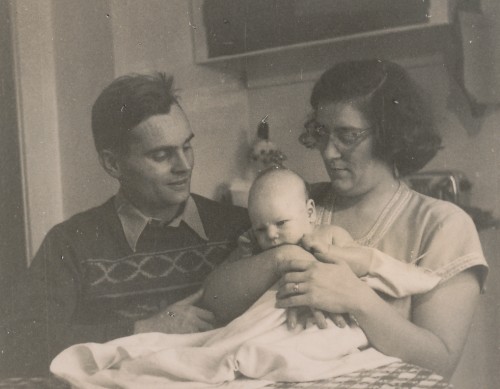 |
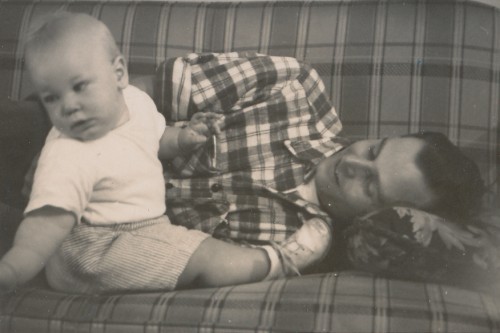 |
Jim was not an
aggressive man by nature. Rather than use his fists, he
was more the passive-aggressive type who got even in sneaky
ways. I suppose my mother was the same way, but one parent
at a time. When I was 8, we had just moved to Sharpstown, a brand new
subdivision at the far
western edge of Houston. We lived next to a neighbor whose
house was on the corner. He was a grouchy old guy who
lived and died for his beautiful St. Augustine grass.
Every time I walked past his house, he was working on his lawn.
I had just gotten my new puppy Terry. One day as Terry and
I came home from a nearby field, this old man screamed at me for
walking through his lawn. My mistake was using a well-worn
shortcut that crossed diagonally across his lawn instead of
using the sidewalk rectangle around the corner. It wasn't
all my fault. Every kid in the neighborhood did the same
thing. Except that I got blamed for the problem. As
I cringed in fear, the man pointed to the barren path where his
precious lawn had been damaged, then really laid into me.
"From now on, kid,
use the damn sidewalk! And while you're at it, I want you to
keep your damn dog from doing his business on my lawn!"
|
When I
told my father what happened, he was furious. Dad thought
of a very
unusual way to get even. He drove to the
hardware store and brought back three sacks of fertilizer.
That night after I went to bed, I heard Dad working in the garage. So I went and peeked through the
door. Dad got out that fertilizer and hand-sprinkled huge
quantities into the man's yard in the middle
of the night. However, that was not
good enough. Dad found some sort of
contraption and modified it into a
make-shift catapult strong enough to reach
the far corners of this guy's lawn.
This way he could fertilize the entire lawn
undetected. Dad did this every chance
he got.
|
|
|
|
Sure enough, that man's grass began to grow like crazy,
but Dad refused to stop.
At least once a week he got out his catapult. For the next four months, that poor
neighbor was forced to mow his
lawn practically every day in the hot sun. Dad thought it
was the funniest thing he had ever done.
Dad and I had a grand adventure when I was
8. We embarked on a cross-country summer camping
trip that took us all the way to the Grand Canyon. One night in
some obscure, completely deserted park in Arizona,
we were awakened by two bears who got into the trash can outside the
tent. Uh oh. Dad had left some food out. Unfortunately, we
were the only ones at the campground. There was no one
around to save us if the bears came after us.
Boy, was I
scared, especially when the bears growled! As we cowered in our
tent, Dad pulled out his prized Bowie
knife. Dad told me not to worry; he was ready to defend me. I
wasn't so sure that big knife was going to be enough, but
fortunately the bears never bothered us as we remained huddled
and quivering in our tent. We eventually made a run for our car and
drove to a motel. When we returned the next morning
to pick up our gear, there were bear tracks all around our tent. We were
both pretty shaken by he ordeal. Not surprisingly,
Dad was done with camping. We
stayed in motels for the rest of the trip. Oh, so what?
Bears or no bears, that was a great trip! Dad and I had a
wonderful time together.
Sad to say, that
1958 trip was our final moment of happiness together.
We were so tight that his
later abandonment made it that much harder to understand. How does a father go
from idolizing his son to forgetting his son? Why
would a man go from caring to not caring?
|
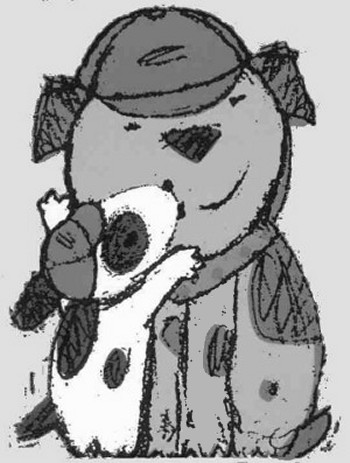 |
1958-1959
THE STORM
BEGINS
|
Not long after we
returned home from Arizona, serious marital problems developed.
My parents began arguing every single night of the week.
I am an only child.
As many an only child can attest, 'only' and 'lonely' rhyme for a
reason.
Age 8, I was terrified when my parents began fighting practically
any time they looked at each other. Their raised voices during the
nightly arguments reverberated throughout the house.
Frightened, I would run to my room.
However no walls could contain
the sounds of their anger and loud voices. Consequently I spent many a night
crying myself to sleep. Trembling and alone, I learned to depend on my year-old border collie
Terry for security.
I had no idea why my
father had become such an angry man. He
had gained weight and grown distant. When he wasn't
arguing with my mother, he spent his nights locked in his study
reading or solving math problems. Personally, I wish he
had stayed in his study. When he did decide to come out, Dad
turned into something straight out of the Shining.
Here's Jimmy!!
My memory is that Dad
started the fights. He liked to pick on my mother. Dad
would to
come home and inspect the house. He found fault at the drop of
a hat. Seriously, Dad would walk in
the door, put his briefcase down, hang up his hat and immediately
stroll around the house. It was obvious he would
keep looking until he found an excuse to start an argument.
Eventually Dad would find something to
criticize my mother over. Dad's favorite trick was to run his
fingers over every surface until he found dust.
|
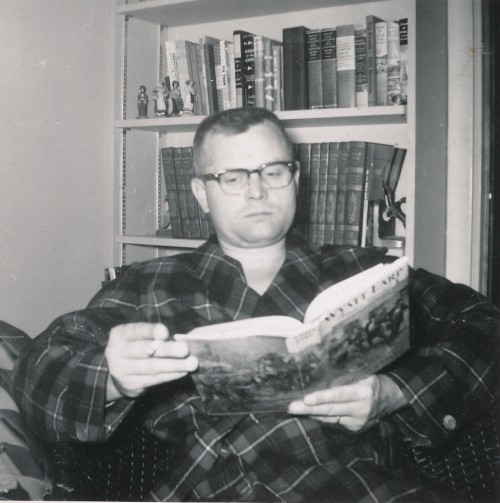 |
I knew the
script by heart. "Mary, god damn it, I work my ass
every day and all you do is sit around the house and do
nothing!"
Game on.
My mother would take offense at his effrontery and the fireworks would begin. Dad loved to tell my mother
how lazy she was. I suppose he was right. Mom was not
big on housework. Furthermore she was quite comfortable with clutter.
On the other hand, the house wasn't that bad. My father didn't see it
that way. He expected the house to look perfect.
Why the hell should he have to
work so hard only to come home to a dirty house? What
did she do all day, watch TV? Read magazines?
"Damn
it, woman, get
off your fat ass and do a little work sometime!"
|
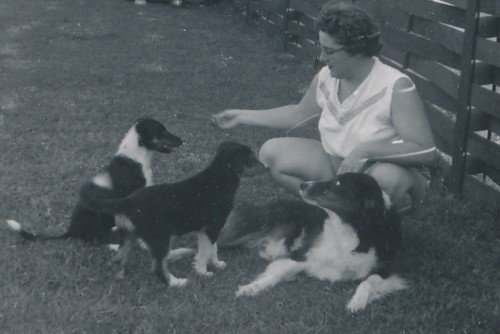
Duke was Mom's dog as
well as Terry's father.
Terry is the middle dog. Mom gave Susie away.
|
Those were fighting
words. Sure enough, a major battle quickly ensued. Things
would escalate and some really mean things would be said.
In my opinion, my father was totally off base.
Whatever he objected to was hardly worthy of a screaming
match. In addition, my father had
conveniently forgotten this was the same woman who sacrificed her own education so that he could get his.
Now that he didn't need her any more, my father began to tee
off on Mom nightly.
My parents
never even noticed me as I stood there watching them in
horror. When their voices began to rise, I soon learned to run to my room for shelter.
I had only my dog Terry for comfort. It didn't matter that
Terry was little more than a puppy; he was the only friend I had. I would
shut the door to lesson the noise and pull Terry onto the bed.
Then we would both hide under the covers. When the arguing got too intense, I would start crying in the
solitude of my room. Once I ran to my room,
the door stayed closed for the rest of the night. Neither parent ever
came to check on me after the battle was over. That was a really rough year.
I became a major disruption at school and my grades plummeted.
Now for the irony.
When my grades dropped, my father concluded I wasn't nearly as smart
as he was. That is what led to the Devil's Bargain.
|
|
|